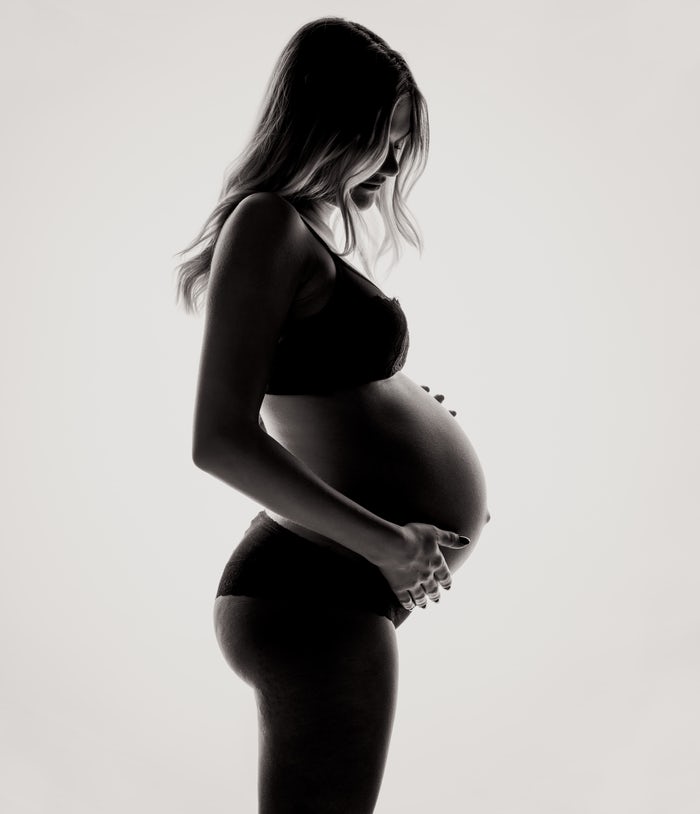

Advanced maternal age is a term we have applied to women over age 35, advanced paternal age is men over 45.
Moms in the US are getting older, and surprisingly to many, this has proved wiser in ways as well. Women over 35 are more likely to have a career, to have had a planned pregnancy, to be in a social and psychological frame for pregnancy and there in lie the primary advantages.
Having a baby later in life is actually a marker for living longer! In studying Amish women, and women in Utah it is found that if you have a baby in late life (your 40s) you are four times as likely to live to over 100! Although for most pregnancy related complications Advanced Maternal Age is a term we have applied to women over age 35, for this we use the cut off of 40. Just because you wonder, we apply the term Advanced Paternal Age to men over 45. A new study published this year in Monopause by Dr Fagan and colleagues it is shown that there is a genetic marker, that probably relates to the health and fertility of these older moms that is a reason they live longer. There is a genetic sequence at the end of our chromosomes that repeat many times. It is thought to be a protection factor of the chromosome, and it’s called the telomere. The telomere length is a marker for health. In older women who have become moms, their telomere lengths are longer and stay longer. Life is associated with DNA turnover. Chromosomes have to repair to be healthy. Oxidative stress reeks havoc on our chromosome protective telomeres. Other factors like life stressors can affect the telomeres.
Moms in the US are getting older, and surprisingly to many, this has proved wiser in ways as well. Women over 35 are more likely to have a career, to have had a planned pregnancy, to be in a social and psychological frame for pregnancy and there in lie the primary advantages. This is leading to all time log pregnancy rates for this group, and the rates of getting pregnant overall have been dropping from 2000-2009dropped 12% according to a CNN Article. These rates are beginning to climb again.
The average age of first baby in the US is age 30, and the older you are when you do have a baby you are more likely to live longer.
Now that we track more diseases there is some evidence increased risk for autism, schizophrenia and learning disabilities in children born to older fathers, so in the discussion has to be the age of dad, so ‘advanced parental’ age meaning either parent, Advanced parental age may prompt mental disorders in the offspring via de novo mutations in the male germline or chromosomal abnormalities in the female gamete.[2] On the other hand, the children of young parents more frequently display conduct disorders and poor outcomes, such as substance use or academic problems, a finding that has been attributed to the socioeconomic deprivation and mental health difficulties affecting teenage mothers.
There are challenges, so one has to be wiser when approaching this decision. Miscarriage rates, already relatively high (1/6) climb to ½ for the mid forty pregnant mom.
While the scientific approach to age related fertility is to assess a woman’s ovarian age, rather than their chronological age, there is a fairly direct association between aging and conception rates. We are still researching the basics of reproduction as you can read in this report from the Population Council. About 8% of all cycles in your early 30s have a defected second half, and about 36% of cycles in women over 40 will have abnormal second half of the menstrual cycle progesterone levels.
Women in their 30s and older are more likely to have uterine fibroids, endometriosis or other gynecologic conditions that if remain untreated can affect fertility. Fertility testing and treatments are usually covered by insurance after “year of trying” but physicians caution that women over the age of 35 trying to have a baby start their infertility testing if they aren’t pregnant within 6 months of trying as about a third of women over 35 will have fertility issues, and over half over 40 will have difficulty conceiving. All fertility treatments, including insemination and in vitro fertilization (IVF), decrease in effectiveness as moms get older. For IVF for instance the percent of embryo transfers leading to births decreases from almost 50% in women under the age of 35 to 15% for women of 41 to 42 and only 6% for women aged 43-44.
The association with age and chromosomal birth defects is relatively well recognized, and the statistics are fairly dramatic. A woman’s statistical risk of having a trisomy 21 (Down’s Syndrome) child if delivering at age 20 is about 1/2000, by age 25 that climbs to 1.1250, by age 35 about 1/400, by age 45 1/30 and by age 49: 1/10. AMA mothers (physician initials for Advanced Maternal Age), have increased risks of structural defects in their children as well, and congenital anomalies including heart, lung and other organ defects are the leading cause of infant death in the US. Once a woman conceives she may be offered a variety of tests to determine whether any of these birth defects exist in the pregnancy. There are many new tests, here’s a discussion about some of the tests that have been around the longest.
Older moms are more likely to have twins. They are also more likely to have triplets, but that’s mostly due to fertility treatment. The increased rates of twinning is specifically due to age related double ovulations. Other pregnancy problems are common as well, including gestational diabetes, which AMAs are twice as likely to develop, and having a thromboembolism (blood clot), already a serious problem, accounting for 15% of all maternal deaths, is more common in women over 35. Direct pregnancy effects on the fetus do increase problems for them including risks such as placental problems including placenta previa (placenta is implanted over the cervix), is twice as likely when you are pregnant in your thirties and about three times as likely as in your forties,. Prematurity (babies born prior to 37 weeks) and stillbirth which is the direct consequence of poor placental feeding of the developing fetus.
There is also a concern that older mothers are penalized in their general health care when pregnant. They less likely to have mammograms (concerns regarding radiation to the fetus if already pregnant and not current on tests) so less likely to have a breast cancer diagnosed early, less likely to receive effective medical or surgical treatment of their condition, in spite of the well meaning care of some of their health care providers.
So how old is too old to have a baby? Like everything in medicine, the phrase, it’s all relative still applies. Risks are greater for older moms, so enter pregnancy after a consultation. Definitely physicians don’t advise waiting if you can make your mind up earlier, as you can see risks go up fairly rapidly. And what do we advise, well, not so much more or less than what we advise for younger women planning to get pregnant. For those still not ready and wondering if and when to preserve your eggs by freezing, they have worked out that it is most cost effective at around age 37. And lastly, have sex, age related decline in sexual activity leads to part of the decreased conception rates, now that’s a prescription that might even be more popular than an apple a day!

